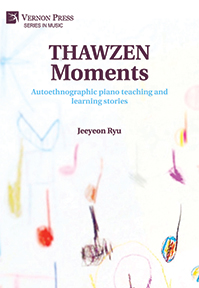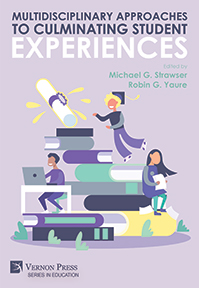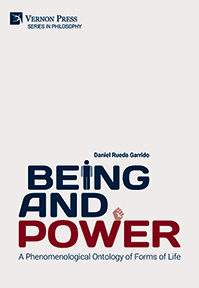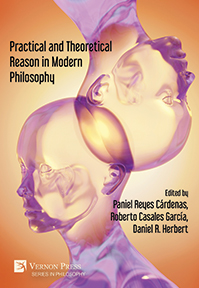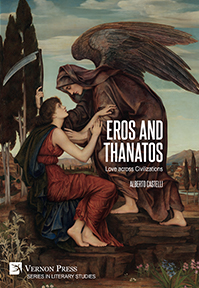Search
Browse
by Publication status
by Subject
Anthropology (26) Art (171) Business and Finance (38) Cognitive Science and Psychology (63) Communication and Journalism (51) Economics (116) Education (71) History (168) Human Geography (23) Interdisciplinary (43) Language and Linguistics (178) Law (16) Music Studies (18) Philosophy (222) Political Science and International Relations (127) Sociology (402) Statistics and Quantitative Methods (21)by Series
Series in Literary Studies (62) Series in Philosophy (57) Series in Education (49) Series in Sociology (42) Series in World History (31) Series in Politics (30) Bridging Languages and Scholarship (25) Series in Language and Linguistics (25) Cognitive Science and Psychology (20) Series in Philosophy of Religion (20) Series in American History (19) Series in Art (19) Critical Perspectives on Social Science (16) Series in Cinema and Culture (16) Curating and Interpreting Culture (15) Series on the History of Art (14) Series in Anthropology (13) Series in Critical Media Studies (13) Economics (13) Series in Business and Finance (12) Series in Music (12) Series in Performing Arts (9) Philosophy of Personalism (8) Series in Communication (8) Series in Law (8) Series in Economic Methodology (7) Series on Climate Change and Society (7) Classics in Economics (6) Series in Economic Development (6) Women's Studies (6) Philosophy of Forgiveness (5) Series in Built Environment (5) Series in Economic History (5) Series in Philosophy of Science (4) Series in Social Equality and Justice (4) Series on the History of Science (4) Serie en Sociología (3) Series in Contemporary History (3) Series in Creative Writing Studies (3) Series in Design (3) The Interdisciplinary Built Environment (3) Series in Heritage Studies (2) Series in Innovation Studies (2) Serie en Ciencias Políticas (1) Serie en Comunicación y Medios (1) Serie en Entorno Construido (1) Serie en Estudios Culturales (1) Serie En Estudios Literarios (1) Serie en Filosofía (1) Serie en Música (1) Series in Classical Studies (1) Series in Economics of Technological Change (1) Series in Philosophy of Race (1) Series in Urban Studies (1)by Language
English Spanishby Author
Browsing with filters

THAWZEN Moments: Autoethnographic piano teaching and learning stories
Jeeyeon Ryu, Yorkville University
Availability: In stock
210pp. [Color] ¦ $65 £54 €61
THAWZEN Moments: Autoethnographic Piano Teaching and Learning Stories is a collection of 46 vignettes, digitally edited photographs, poems, and reflective-reflexive narratives about children’s imaginative, creative, and magical lifeworlds of exploring music and piano playing. There are many ways of learning to play the piano, THAWZEN different ways of re/imagining music. There are many stories to share with you, never-ending questions to explore together. The stories included in this book are our happy piano play, our shared musical journeys in re/creating more meaningful and joyful piano teaching and learning experiences.
Multidisciplinary Approaches to Culminating Student Experiences
Edited by
Michael G. Strawser, University of Central Florida
and Robin Yaure, Penn State Mont Alto
Availability: In stock
264pp. ¦ $104 £83 €97
Despite the relatively recent popularity of culminating experiences, a multidisciplinary and practical resource that provides information for all types of culminating student experiences is not yet available. The idea for this volume arose because of the recognition that a holistic and applied resource for those looking to have general knowledge of different ways to assess student learning, especially at the undergraduate level was lacking. This text seeks to fill a gap and provide a historical context for culminating experiences, suggestions for assessment, foundational knowledge for different types of projects, and finally approaches to using these experiences in various disciplines. Because of the information desired, experts in their field from a wide variety of disciplines were approached to be chapter contributors. This resource focuses predominantly on undergraduate students but many of the chapters can either be applied to both undergraduate and graduate students (e.g., thesis) or specifically focus on the graduate student population (e.g., dissertation).
Being and Power. A Phenomenological Ontology of Forms of Life
January 2024 / ISBN: 978-1-64889-817-4Availability: In stock
146pp. ¦ $55 £44 €51
Why do we act as we do? Why do we assume that the way of being and behaving in our community is right, good, and common sense? Why do we fail to understand those who are, act, and feel differently? These are some of the questions that this book raises and attempts to answer. This ontology is rooted in the phenomenological tradition but with the innovation of taking the "form of life" as the central ontological unit. We are our form of life, but, as a transcendental-immanent reality, this is not directly equivalent to culture or society; it is rather the "political" realisation in the world of an image of the human being shared by a given community. This overcomes the traditional dualities of individual and society, consciousness and body, facticity and freedom, actuality and possibility. The subject is a subject because it identifies with that image, which is equivalent to the intersubjective consciousness of how one should act and be in the world. This gives rise to multiple forms of life. The latter implies a certain power to be who one wants to be. In this way, the book is an invitation to self-examination, for if our form of life is voluntary (i.e., capitalism), it shatters the illusion that one cannot live in any other way, and places us before the anguished but inevitable task of justifying its adoption or resorting to its abandonment. The book offers a dynamic analysis of human existence as the actualisation of a form of life that is, at the same time, the exercise of a certain power over those who seek to live otherwise, especially when that form is institutionalised by a government as the essence of the national or transnational community.
Practical and Theoretical Reason in Modern Philosophy
Edited by
Paniel Reyes Cárdenas, Oblate School of Theology; The University of Sheffield et al.
Availability: In stock
210pp. ¦ $103 £82 €96
The present collection aims to examine this fertile period in the history of philosophy concerning its significance for understanding the relation between theoretical and practical reason, or, relatedly, facts and values. Our contributors have explored different important ways in which both the shortcomings and insights of the theoretical/practical distinction have shaped Western philosophy.
Eros and Thanatos. Love across Civilizations
Alberto Castelli, Hainan University, China
Availability: In stock
254pp. ¦ $82 £65 €76
'Eros and Thanatos' is about the deadly nature of love. It is remarkable that literary critics have paid so little attention to the combination between love and death in literature. This book seeks to address this significant scholarly lacuna by exploring key literary texts of the last two hundred years as exemplary of a consistent tendency toward love and death. Its emphasis on singular characters and close readings suggests the spectrum of an arbitrary dichotomy never fully resolved. The existential discussion triggered by each plot is so intense that the erotic and the merely sexual seem inappropriate. Indeed, each writer chose to reduce it to the setting and background of a story that takes place elsewhere. With this in mind, the author intends to reflect love’s paradoxical nature. If love is triggered by beauty, beauty can be immoral and love must die to preserve the illusion of beauty.

